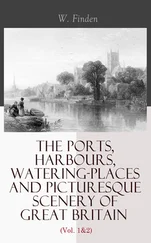Samuel told Whicher that the second Mrs Kent had taken the precaution of hiding from Constance the copies of The Times in which the trial was reported - this suggested that the girl was known to take an unusual interest in lurid crime, even at the age of thirteen. 'Owing to the peculiarity of the case the papers containing the account of the trial were studiously kept away from Miss Constance,' reported Whicher, 'and after her Trial they were concealed, locked up in a drawer by Mrs Kent.' When Mrs Kent checked the drawer a few days later she found the papers had vanished. 'Miss Constance was suspected and questioned but denied all knowledge of them, but on her bed room being searched they were found secreted between her bedstead and mattress.'
Perhaps reading the reports of Madeleine Smith's trial and acquittal had given Constance ideas about murder, as it had John Thomson, a man who in December 1857 said the case had inspired him to administer prussic acid to a woman who had spurned him. Though Saville was not killed with poison, his murder was well-plotted, silent, homespun: a blanket was a murder weapon as bland and comforting as a cup of chocolate. Madeleine Smith had shown that by being cunning and immovable a middle-class murderess could become a figure of glamour and mystery, a kind of heroine (Thomas Carlyle had used the phrase to describe the Bermondsey murderess Maria Manning). And if she kept her nerve she might never be caught.
There seemed to be a new breed of chilly female criminal whose concealed passions had twisted into violence. Usually the passions were sexual. Maria Manning and Madeleine Smith were apparently respectable women whose first sin was an illicit liaison, their second the murder of a former lover, a kind of violent extinction of their own lust. Madame Fosco in The Woman in White is sucked into crime by her passion for the dominating Count, and 'her present state of suppression may have sealed up something dangerous in her nature, which used to evaporate harmlessly in the freedom of her former life'. The murderess Madame Hortense in Bleak House , who was based on Maria Manning, was 'long accustomed to suppress emotion, and keep down reality'. She was 'schooled for her own purposes, in that destructive school which shuts up the natural feelings of the heart, like flies in amber'.
* * *
The dizzying expansion of the press in the 1850s prompted worries that readers might be corrupted, infected, inspired by the sex and violence in newspaper articles. The new journalists shared much with the detectives: they were seen alternately as crusaders for truth and as sleazy voyeurs. There were seven hundred newspaper titles published in Britain in 1855, and 1,100 by 1860 - of the papers printed closest to Road, the Trowbridge and North Wilts Advertiser was established in 1855, as was the Somerset and Wilts Journal , while the Frome Times , which the Kents took, was founded in 1859. There was a huge rise in crime reporting, aided by the speed with which news could be transmitted by the electric telegraph, and newspaper readers came across accounts of violent death every week. When Mr Wopsle in Dickens' Great Expectations (1861) reads the news, he becomes 'imbrued with blood to the eyebrows'.
At least three cut-throat domestic killings were reported in newspapers all over the country in the month before Saville Kent's death. In Shoreditch, east London, a pipemaker murdered his common-law wife: 'Her throat was cut so extensively that the head was nearly severed from the body,' according to the Annual Register . 'She must have died instantaneously without struggle or noise.' At Sandown Fort on the Isle of Wight, Sergeant William Whitworth of the Royal Artillery killed his wife and six children with a razor, leaving their throats 'gashed in so horrible a manner as to show the vertebrae of the neck'. Above a confectioner's shop in Oxford Street, London, a French tailor decapitated his wife with a saw, then went to Hyde Park and shot himself. 'His brother stated that he was in the habit of going to Dr Kahn's Museum, and studying the arteries about the neck and throat, and especially familiarising himself with the position of the jugular vein.' The tailor had educated himself in how to kill, and any newspaper reader could do the same.
* * *
In the middle of the week Whicher accompanied the magistrates to Road Hill House to conduct a further interview with Constance. In answer to their questions, she described her relations with some of the house-hold: 'I was very fond of Saville . . . He used to be not very fond of me; he appeared fonder these holidays. The little boy was not fond of me because I teased him. I never struck him or pinched him . . . William is my favourite of my brothers and sisters. We write to each other when I am at school . . . The dog wouldn't fly at me if he recognised me. He would bite me if he didn't know me . . . I have a cat but I don't care anything for it . . . I like the cook best of the servants. I like the nurse very well.'
On being questioned about her own qualities, she replied: 'I am not considered very timid. I don't like being out in the dark . . . I could carry the deceased the length of this room easily. I was generally considered pretty strong at school.' She denied telling her schoolfriends that she didn't want to go home for the holidays. She was asked about the Madeleine Smith trial and agreed that she may have inadvertently taken a newspaper that reported it: 'I heard Madeleine Smith's friend was poisoned. I used to hear Papa talk about it.' She gave an account of her flight to Bath four years earlier: 'I once did cut off my hair and fling it down the same place where my little brother was found. I cut part of my hair and my brother cut the rest. I thought of the place to put it in. I and my brother William went to Bath by an indirect road . . . I went off because I was cross at being punished. I persuaded my brother William to go with me.'
As the week wore on, rumours began to emerge of the full extent of the county constabulary's incompetence, and of Samuel Kent's obstructions. In particular, a story took shape about what happened on the night after Saville's body was found.
In the evening of Saturday, 30 June, Superintendent Foley directed PC Heritage, of the Wiltshire police, and PC Urch, of the Somersetshire police, to stay overnight at Road Hill House. 'Mr Kent will tell you what to do,' said Foley. 'Come quietly, because Mr Kent does not want the servants to know you are there.' Only Mrs Kent was told that the officers were on the premises. Already it was pretty clear that Saville had been killed by one of the inhabitants of Road Hill House but, astonishingly, Foley none the less handed over charge of the night's police operation to Samuel Kent.
At about eleven o'clock, when everyone but Samuel had gone to bed, Heritage and Urch knocked at a library window to be admitted to the house. Samuel let them in and led them to the kitchen, where he told them to remain. Their task, he informed them, was to watch out for anyone trying to destroy evidence in the kitchen fire. He gave the policemen bread, cheese and beer and then bolted the door after them. The two policemen were ignorant of their imprisonment until, soon after two in the morning, Heritage tried to get out. On discovering that the door was locked, he knocked for Mr Kent. When he got no reply he rapped on the door with a stick.
'You are making enough noise to wake all the people in the house,' warned Urch.
'I am locked in and must get out,' replied Heritage.
When Samuel released him, about twenty minutes later, Heritage told him they hadn't known they were locked in. 'I have been walking about,' Samuel replied, ignoring the complaint. Urch stayed in the kitchen for the rest of the night, with the door bolted. Samuel looked in on him two or three times, and the constable left at five in the morning. 'I was in the library during a portion of the night,' Samuel said later, 'but left the house once or twice. I went out to see if the lights were out. I went out several times for the same object.' He circled the house, he claimed, to see if the candles were burning and if their wicks needed trimming.
Читать дальше












